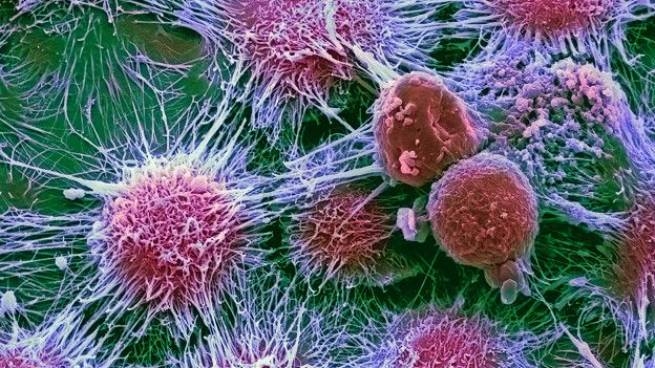A recent study by Rutgers scientists explains how zombie cancer cells age rapidly and then come back to life. Can this process be stopped?
Until the results of a recent study by researchers at the Rutgers Cancer Institute in New Jersey, the mechanism for the rebirth of senescent cells, sometimes called zombie cells, was only partially understood. Mutating cells can prevent the spread of cancer by putting themselves into a state of reduced activity called aging. However, the cancer genes are able to revive them so that they can reproduce again.
Rutgers research has traced this process in colorectal cancer* cells and believes that this process is similar to other types of tumors. Ricardo Ivan Martinez-Samudio, lead author of the study published in Cell Genomics, assistant professor of pharmacology at the Robert Wood Johnson School of Medicine and research fellow at the Rutgers Cancer Institute in New Jersey, explains:
“Once a cell starts to become cancerous, it starts to multiply very quickly and that causes aging. However, once a cell becomes senescent, it often begins to produce a certain protein that helps it come out of aging. The next step in the research is to see if drugs can affect this protein. We want to find a substance that will bind to it and prevent it from binding to other proteins so that these cells remain in a state of senescence and do not proliferate.”
Researchers from Herbig’s lab at Rutgers School of Medicine in New Jersey began by studying the development of cultured cells in petri dishes. They then confirmed their findings in tissues taken from real colon cancer patients. The study showed that entry into and exit from aging are pre-encoded and mediated by the same types of proteins. They not only stimulate the entry into aging, but also contribute to the exit from it, facilitating the necessary protein interactions.
The study identified POU2F2 as a critical anti-aging protein and showed its role in the development of colorectal cancer. It is the overexpression and increased activity of POU2F2 that are associated with inflammation and proliferation** of cells and with a decrease in patient survival. POU2F2 has been implicated in the progression of various cancers and may be a viable drug target.
That being said, the authors of the study say any anti-aging strategy can help. Maintaining cells in aging gave patients a significantly better chance of surviving cancer than patients whose cells escaped aging. Martinez-Samudio says:
“The body protects itself from certain types of tumors by causing cells to completely destroy themselves rather than downregulate before aging. We’re not entirely sure why this isn’t a more common reaction—probably because killing a large number of continuous cells would create holes in important tissues—but the body prefers aging over cell death as a defense against many solid tissue tumors, so we We want to help this defense work properly.”
Thus, scientists have found out why cancer patients come to life and again get the opportunity to multiply cancer “zombie cells” instead of dying, details the results of the study Medical Express.
*Colorectal cancer is a malignant disease of the large intestine or rectum.
**Proliferation is the growth of body tissue by cell division by cell division.







More Stories
Why cats don't go to your hands and don't like to be petted
Association of Professional Nutritionists to be created in Greece
The first ever Miss Artificial Intelligence beauty contest has been announced.